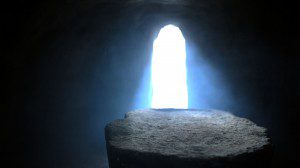 I grew up watching the Boston Marathon. It always hit at a lovely spot in the year: mid-April. In New England, this is an enchanting time, mostly because the months immediately preceding it have not lacked for cold. The flowers start to bloom, the temperature skyrockets to a blistering 50 degrees, and kids burst out of doors to play.
I grew up watching the Boston Marathon. It always hit at a lovely spot in the year: mid-April. In New England, this is an enchanting time, mostly because the months immediately preceding it have not lacked for cold. The flowers start to bloom, the temperature skyrockets to a blistering 50 degrees, and kids burst out of doors to play.
My family always traveled around this time to Lincoln, Massachusetts to visit my grandparents. I loved this trip. School was out for a week. My grandfather subscribed to the Boston Globe, which I thought was a miracle of reportage. The paper had multiple sports columnists and printed the statistics of every Major League Baseball player. I do not know why, but I loved those stats. Grandpa used to send me the stats in the mail, clipped out in neat lines, the date listed in his clear pen at the top. It was the Larry Bird era, it was the Boston area, it was the season of Revolutionary War reenactments in Lincoln and Lexington and Concord. It was magical.
The Boston Marathon was a centerpiece of all this. I can close my eyes and see it playing on the TV in my grandmother’s kitchen. It was funny, because the race was always on for hours and yet I can’t remember my family watching it for very long. There was a comfort in it being on, though, and a connection to something permanent and good. It was New England. It was who we were as a people.
Last year, the race was rocked by the “Boston bombers,” two brothers who committed an unspeakable act of evil during the marathon and then followed it up with several more. I was transfixed for days afterward by the coverage, the unfolding story, the confusion over where Dzhokhar Tsarnaev was. In wanting to hurt others, the Tsarnaevs had made a devastatingly effective choice. The marathon was a seemingly innocent cultural moment, a season when New England came together. Though it’s just a road race through a city, the marathon represents the region–patriotic, proud of its heritage, tough as a runner cutting through the cold wind of a Massachusetts spring.
One year later, those affected by the bombing are still recovering. The Globe has released a moving profile of the family of Martin Richard, the little boy the Tsarnaevs killed. They are struggling to heal, though they have made admirable strides. Their community has rallied around the Richards. Life does continue, painful though it may be.
The recovery stories covered by the media are impressive. They are worth reading. They show us the strength of the human spirit. We celebrate and even cherish these stories. But we are also reminded by them that things taken are never regained in this life. All the communal goodwill and tightened security and public memorials cannot bring back murdered children. I love New England. I love the fierce will of the people, a will bred into their forebears centuries ago by harsh winters and short summers. But love and pride and fierceness of will cannot heal what has been scarred. Time does not erase all wounds.
There is only one force in the world that can truly put back together what sin has broken and what evil has shattered. All else must give way, and every form of balm that promises transcendent hope must yield, and go quiet. Only the cross of Jesus Christ, with its convulsive, overpowering force, can overcome sin and death and hell. These are our true foes. We have forgotten them, both in New England and beyond. But they stalk us nonetheless, and none can stay their hand. None except Jesus crucified, Jesus the spectacle, Jesus the sin-bearer.
Because of the cross of Christ, and the empty tomb that could not contain Christ, we dare to look toward a world where little boys do not come to marathons to cheer only to die. Take away the cross and the tomb and we cannot, we must not, look forward. There is no hope. There is only endurance. There is only the human will, attempting with ever-decreasing potency to exert its fierceness and transcend its limits. Our natural strength can take us far in this life. But it cannot take us all the way home. It cannot bridge this world and the next. It must eventually–or quite suddenly–collapse.
The sober truthfulness of human limits need not lead us to despair. In our fragility, God has opened a door for us. He has allowed us to see that there is life without end. There is a place where hope is reality. There is a world where little boys and little girls do not die. There is a realm of joy, a world of love, a city of salvation. Its light does not dim. Its lamb does not leave. To enter it, we need not exert ourselves. We need not perform impressive feats. We must only come to Jesus Christ, fall before him, and die to ourselves, trusting in his death and his resurrection.
The kingdom seems far off. But it is near. If we will die with Jesus as the wretched of the earth, we will rise as sons and daughters of the kingdom. No one can stop this. No one can take us away. In a place where the evil one seeks to cripple and crush all the children he can, we remember these promises.
I am praying for healing in this season. I am hopeful that the wounded can recover. I am so thankful for the indomitable spirit of so many. But much as I love the Boston Marathon and all it stands for in New England, I cannot help but remember that there is something so much greater before us. It seems far off, but the world in which the innocent are protected and the broken are made whole is closer than our eyes can see.











